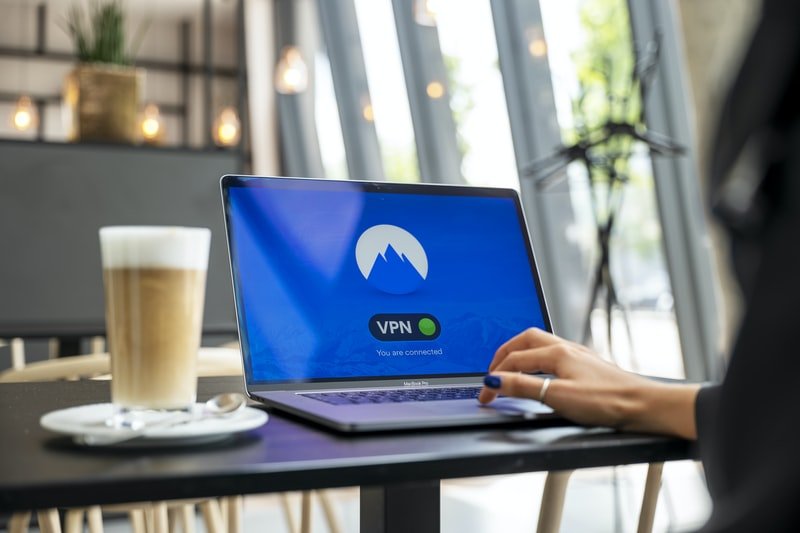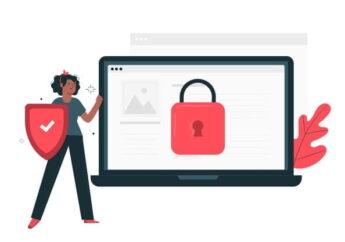Digital Privacy: How To Keep Your Information Safe Online
by Abdul Aziz Mondal Business Security Systems Published on: 16 September 2021 Last Updated on: 30 December 2024

From chatting with friends to shopping or paying bills, many tasks are now done online, the digital way. But this convenience can come with a price: your personal information.
More and more people put their personal and sensitive information out there, entrusting it to sites to access services. Such data can also be useful and even profitable for research and marketing purposes. But despite the security strategies utilized by companies and sites, consumer data is still at risk of being exposed through hacking or security breaches.
With rapid digitalization, the need for stronger cybersecurity responses grows. More than what websites can promise, securing your digital privacy is a personal responsibility. You are your first line of defense in keeping your online data safe and private. Therefore, it is necessary to be cautious and informed in keeping your personal information secure online.
What is Online or Digital Privacy?

Digital or online privacy pertains to an individual’s regulation of how much information is shared online and how it remains private. This information can include personal details, employment records, financial information, and even health records.
Some personal data are considered sensitive. Hence it is important to maintain sufficient digital privacy actively. However, research showed that many Americans believe that they cannot control their data, partly because of the confusing and elusive ways of collecting and using data.
Data privacy can be tricky. It takes a lot of effort to build, yet it can be easy to jeopardize. By clicking suspicious links, phishing emails, or simply saying yes to the privacy policies that you did not read carefully, there is a chance that you might inadvertently be sharing your data online. This data can be used in so many ways that will not benefit you, and in some cases, can even harm you.
Complacency and lack of cyber hygiene can put your personal information at risk, as well as your reputation and even your life. Vigilance and discipline should go hand in hand to ensure you are surfing the internet in a smart and safe way.
Staying Protected Online
Consumers have the right, the ability, and the responsibility to keep their personal information regulated, safe, and kept private. You have the power to do this. There are some measures you can take to protect your personal data online:
Secure Your Online Accounts
All the accounts you created online, whether on social media, email, multimedia, and music streaming platforms, will most likely contain personal and sensitive data, like your date of birth, employment history, financial transactions, and others.
With this, try to keep it secured by using effective passwords and change them regularly. Personalize your security settings and regulate what you share online as well. Sometimes, what you share on social media and other platforms can quickly result in someone’s search results. If you want to leave no trace at all, you can remove your name from Google with Erase. This way, you can be sure that your name will not appear anywhere that you don’t want it to.
Check Your Browser
Browsers collect user data. Most browsers keep a record of the words you type and search and the links and ads you click on. They use this data to track and give you more relevant search results and suggestions. However, widely commercialized browsers, like Google Chrome, subject to privacy-related controversy, cannot always guarantee your data’s safety.
Make sure to modify how much data your browser can save through the settings. Otherwise, consider trying more private browsers like DuckDuckGo or using untraceable browsers that do not save user data, like Tor Browser for PC. Using a VPN can also help make your browsing safer.
Using Ad Blockers and Anti-Virus Software
Using some additional apps and software like ad blockers and anti-virus can help boost your online data privacy. Ads are often sent your way based on your online data, and upon clicking, it also gathers more data from you. Pop-up ads can be annoying, too, so consider installing an ad-blocking app on your device.
Moreover, as hackers and illegal data miners are getting smarter, sending all kinds of phishing emails and malware using anti-virus software can come in handy. Most anti-virus applications come with file scanners and can also detect unsafe sites and download items. With this, you reduce the risk of getting anything on your device to gather and expose your data.
What the Future Holds
As the technology further evolves into more innovative and powerful tools, data privacy will always be an evolving issue. The health sector and the government are shifting to digital while face recognition technology and AI models are further developed. These are some revolutionary and beneficial advances in technology. Paradoxically, they pose more significant threats to consumers’ data privacy.
People cannot rely on internet companies to fully protect their data. Still, data privacy laws are being implemented and regularly updated globally to help keep personal and sensitive information online safe. Europe’s General Data Protection Regulation is among the strongest standardized data privacy laws globally. It covers organizations in the EU region and obliges organizations to comply with it to collect data from the people in Europe.
Moreso, in the U.S., the Comprehensive Consumer Data Privacy Law is being implemented by various states, with provisions that primarily give consumers the right to ask businesses and websites what type of personal information will be collected from them and for what purpose.
Your Data, Your Power, Your Responsibility
The issues in data privacy will continue to persist if not grow and evolve. The key is in vigilance. Governments globally are trying to standardize data privacy laws in some ways.
Along with this, people, as consumers, have to exercise their right and responsibility to keep their data private, safe, and in their control. Stay informed and keep your information protected online, even in the simplest way, so you can enjoy safer internet usage.
Read Also:





































































































